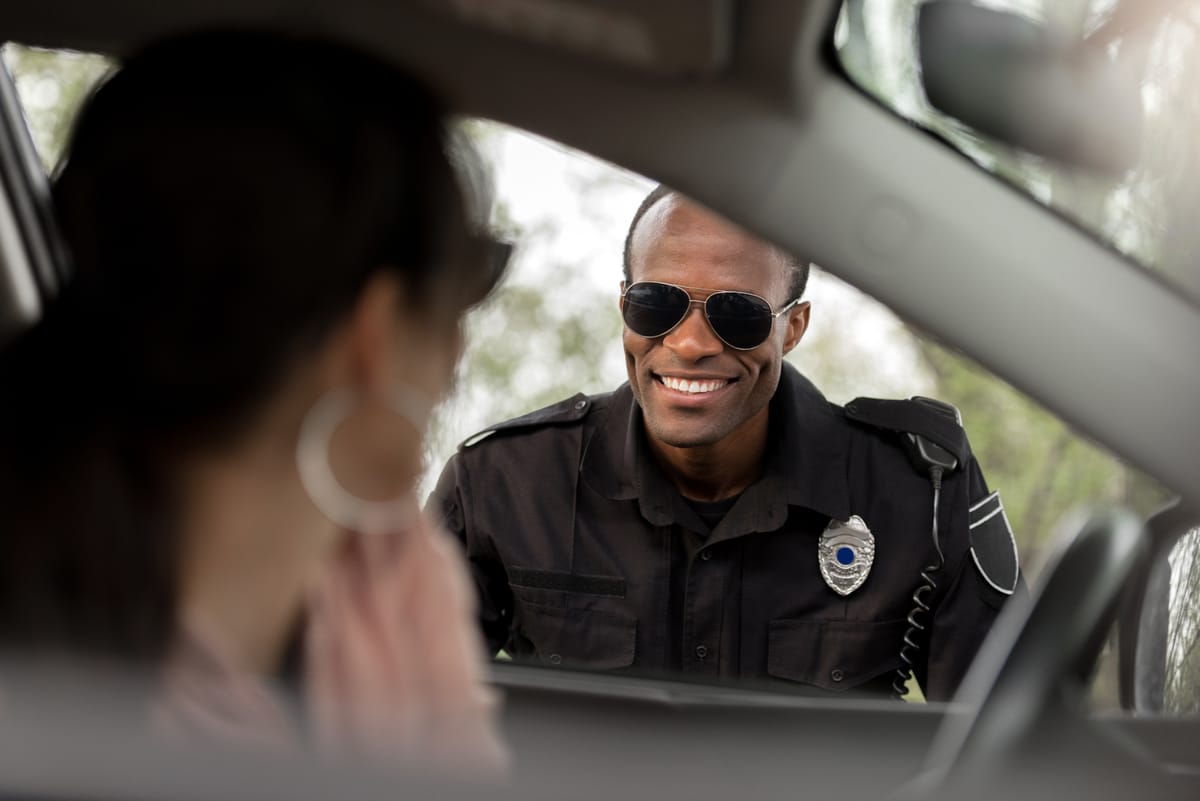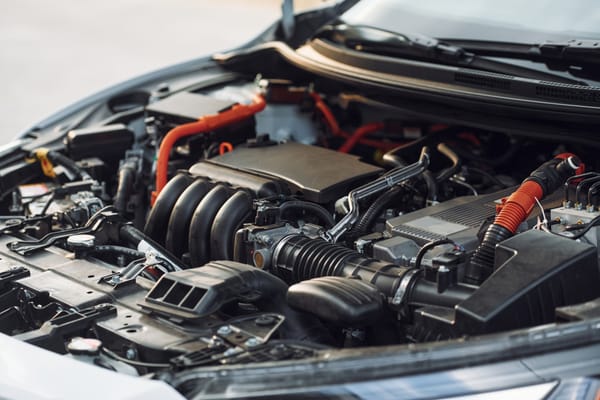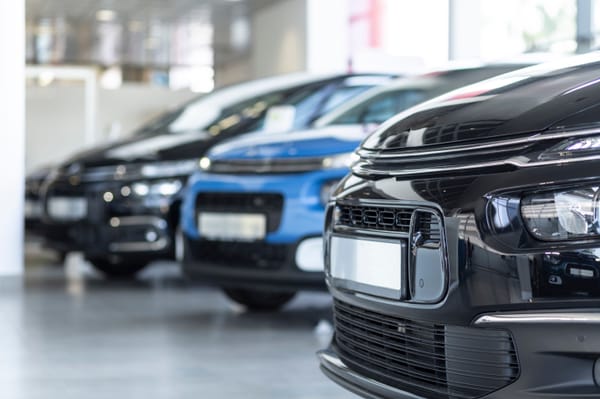What to Do and Not Do When You're Stopped by Police

If there is something we all dread, and it almost always happens, it is being stopped by the police. The signal comes. The hand waves you over.
Your stomach does a backflip. That sudden feeling of panic is real.
Even if your car is spotless and your driving is perfect, being stopped by the police is never a vibe. It’s part of the Kenyan driving experience.
But here’s the secret: your reaction matters more than the reason you were stopped. Knowing your rights and the drill can turn a stressful moment into a quick, drama-free exchange.
This is your battle plan. Let's make sure you handle this situation like a pro.
Why Police Stops Happen More Often Than You Think
It’s not personal, it's procedure. It feels like officers are everywhere, stopping every car. But they have reasons.
It helps to know what they are looking for. Most stops fall into these buckets:
- Routine Traffic Checks: These are common. Officers set up roadblocks along major roads to check general compliance. Traffic rules allow for these checks.
- Expired or Missing Documents: This is the biggest trigger. Missing insurance stickers, expired licenses, or faded plates are spotted from a distance. NTSA regulations require documents to be current and visible.
- Vehicle Condition Issues: Is your windscreen cracked? Are your taillights broken? Too much tint? Loud exhaust? The Traffic Act Cap 403 sets the standards for roadworthiness.
- Suspicious Driving: Swerving, driving too slow, or sudden braking suggests you might be under the influence. They are trained to watch for unusual behaviour.
- Targeted Operations: During weekends or festive seasons, police focus on specific offences like drunk driving, overlapping, or overloading.
Understanding these reasons helps you stay prepared. Si lazima ungoje ushikwe.
Your Folder of Power: Documents You MUST Have
Don't try to charm your way out of missing documents. Ina-fail. Either you have them, or you get a fine. Period.
Here’s what you need to carry, always:
- Valid Driving License: Carry the physical card or use the eCitizen digital license. Make sure it hasn't expired. An expired license is the same as driving without one.
- Original Logbook or Certified Copy: If your car is financed, your bank holds the original. A properly certified copy is perfectly fine. Keep it neat and legible.
- Current Insurance Certificate: This is non-negotiable. The Insurance Act requires at least third-party cover. The physical certificate or AKI Verification Mobile App confirmation works. Driving with expired insurance means a fine and likely a tow.
- Valid Inspection Certificate: Required annually for private vehicles that are over four years old. No sticker means your car is unroadworthy, by law.
- National ID or Passport: Always have proof of identity, separate from your license.
Peach Cars Pro-Tip: Get a small folder for your glove compartment. Keep all these papers in it. You should be able to present them in under 15 seconds. Also, take photos of all documents and save them offline on your phone as backup
Your Rights and Responsibilities: Know the Law
Knowledge is your best defence. You have rights, but you must also be responsible and cooperative.
What Officers CAN Legally Do
- Request Documents: They have the authority under the Traffic Act to demand your license, logbook, insurance, and inspection certificate. You must produce them.
- Inspect Your Vehicle: They can check for roadworthiness. This includes tires, lights, indicators, and the general condition of the gari.
- Conduct Sobriety Tests: If they suspect drunk driving, they can use a breathalyser. Refusing the test is a separate offence under traffic regulations.
- Issue Instant Fines: Officers can issue fines for visible traffic offenses. While Kenya is transitioning to a digital system for instant fines, not all stops are automated yet. You may receive a physical ticket or an SMS with payment instructions. Either way, payment must be made through official cashless channels.They can issue fines for visible violations using the eCitizen cashless system. You will receive an SMS with payment instructions.
- Impound Your Vehicle: They can tow your car if you are driving without insurance, with a suspended license, or if the car is deemed unroadworthy.
What Officers CANNOT Legally Do
- Demand Cash Payments: Fines must be paid through official systems—whether via eCitizen, M-Pesa paybill, or bank transfer. If an officer asks for “kitu kidogo,” that’s bribery, plain and simple. It’s illegal under the Bribery Act and should be reported.All fines must be paid through official channels (eCitizen, bank, M-Pesa paybill). An officer asking for "kitu kidogo" is soliciting a bribe. This is illegal under the Bribery Act.
- Search Without Cause: They cannot search your vehicle randomly or without a warrant. Random searches violate your constitutional rights unless they have reasonable suspicion.
- Confiscate Personal Devices: They cannot take your phone, dash cam, or demand to see your personal messages without a court order.
- Threaten or Harass: The National Police Service Act protects you from abuse or excessive force.
If an officer crosses a line, calmly note their name, service number, and station.
How to Stay Calm and Cooperative (Kaa Rada)
Your attitude dictates the outcome. Being polite smooths things over. Being confrontational makes it worse. Don't escalate the situation.
- DO Pull Over Safely: Indicate, slow down, and stop in a safe spot immediately. Don't look like you’re trying to run away.
- DO Stay in the Car: Turn off the engine. Keep your hands visible on the steering wheel. Wait for the officer to approach you. This signals cooperation.
- DO Be Respectful: A simple, "Habari yako officer, good morning" sets a decent tone. Rudeness achieves nothing except frustration.
- DO Present Documents Quickly: Hand over your accessible folder. Avoid fumbling. Efficiency is key.
- DO Answer Questions Truthfully: If asked where you are coming from, answer simply. Avoid giving unnecessary details ama story za jaba.
- DON’T Argue: Even if the stop feels unfair, arguing roadside won't change the officer's mind. Comply first, then dispute the matter later through the proper channels.
- DON’T Offer a Bribe: Never offer "chai." This is illegal and encourages corruption. If they hint at it, politely state that you will pay any fine through official channels.the official eCitizen platform.
- DON’T Refuse to Produce Documents: Refusing to provide your license is a chargeable offense.
- Recording: You are legally allowed to record. If you feel the need, inform the officer respectfully: "I am recording this for my records."
If Things Go Left: Fines and Unfair Stops
Sometimes a fine is unavoidable. Sometimes, it feels like a setup. But what you have to know is that fines vary depending on the offence. According to NTSA penalty guidelines, common fines range from Ksh 1,000 for minor violations to Ksh 10,000+ for serious offenses like driving without insurance. Payment deadlines are usually 7-14 days.
Here’s how you can handle a legitimate fine:
- Accept and Pay: If you genuinely violated the rules, accept the fine gracefully.
- Cashless Payment Only: Whether you receive a physical ticket or a digital notification, pay through the approved systems—eCitizen, M-Pesa paybill, or bank. Never hand over cash.Pay through the official eCitizen system. You’ll get an SMS with a reference number and instructions.
- Keep Your Receipt: Always save the payment confirmation.
If you feel the need to contest unfair fines, this is what you do:
- Comply, Then Document: If you receive a ticket you think is wrong, pay the fine first to beat the deadline. Do not argue on the spot.
- Gather Details: Note the officer's name, badge number, station, time, and specific violation.
- File a Complaint: If you have evidence (dash cam footage, witnesses), you can visit the traffic court to contest the fine.
- Report Misconduct: If an officer demands a bribe or harasses you, report them immediately. Contact the EACC (Ethics and Anti-Corruption Commission) hotline 1551 or the IPOA (Independent Policing Oversight Authority). You can report anonymously.
Don't suffer in silence. Use the proper channels.
Drive with Confidence, Not Worry
A police stop is just a check-up for your car and your documents.
Keep your paperwork current. Be polite and respectful. Know your rights, but cooperate with the procedure. When you're prepared, the whole thing takes a maximum of five minutes.
Owning a car in Kenya comes with responsibilities, but also with power: the power of knowledge.
At Peach Cars, we believe driving should be worry-free. That’s why we give you guides like this one. We also ensure every car we list is verified, logbook-checked, and compliant with all regulations.
Browse our collection of verified rides and experience the confidence of driving a car you can truly trust. Drive easy. Drive Peach.




